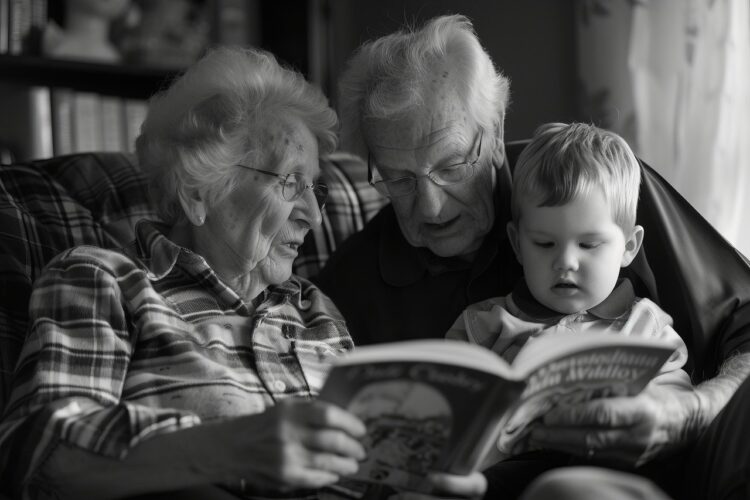
Divorce doesn’t only affect the immediate family – it often disrupts extended family relationships as well, leaving grandparents at risk of losing contact with their grandchildren. However, the law recognises the vital role grandparents can play in a child’s life and provides options to secure this bond.
The cornerstone of grandparents’ rights in the UK lies in the Children Act 1989, which sets out the principles guiding courts in decisions about a child’s upbringing. At its heart is the paramountcy principle under Section 1(1), which ensures that the child’s welfare is the court’s primary consideration. This legislation emphasises protecting the child’s best interests, which can include preserving meaningful relationships with extended family members, such as grandparents.
Why grandparents’ rights matter
As well as love, grandparents often provide stability and support, especially during challenging family transitions like divorce. Research shows that children who maintain close relationships with their grandparents tend to experience better emotional and social outcomes.
Legal options for grandparents
While grandparents don’t generally have the automatic legal right to see their grandchildren, they can apply for contact through the courts under certain circumstances.
The key steps include:
- Apply for leave to apply: In most cases, grandparents must first seek permission (leave) from the court to request a child arrangement order.
- File for a child arrangement order: This legally defines the time and way a grandparent can spend with their grandchild.
- Mediation: Before resorting to court, grandparents are encouraged to try mediation to resolve disputes amicably.
In some circumstances, grandparents may have an automatic legal right to apply to the Court for contact with a child. Those circumstances include:
- If the child has lived with the grandparent for 3 years or more.
- If the child is in the care of a Local Authority and that Local Authority supports the grandparents’ application.
- Where all parties with Parental Responsibility consent.
- If the grandparent is a Guardian for the child.
- If the grandparent is a Special Guardian for the child.
- If the grandparent is already named on a Child Arrangements Order providing for residence.
- The grandparent is a Foster Parent, and the child has been living with him/her for 1 year or more.
- If the person who is making the application for a Child Arrangements Order is a relative with the child residing with them for 1 year or more – the definition of ‘relative’ is wide but is defined in Section 105(1) Children Act 1989 as grandparent, brother, sister, uncle or aunt, full-blood, half blood, by marriage or civil partnership, or step parent.
Factors the court considers
The court will prioritise the child’s welfare, examining:
- The Welfare Principle: this is the Court’s paramount consideration and is weighed up in each and every case concerning children. The Court will consider the ascertainable wishes and feelings of the child concerned, the child’s physical, emotional and educational needs, the likely effect on the child of any change in the child’s circumstances, the child’s age, sex, background and any characteristics which the Court considers relevant and how capable each of the parents (and/or grandparents or other family members) is of meeting the child’s needs.
- The relationship: The closeness of the bond between the grandparent and grandchild.
- Sibling relationships: whether separation of the child from any sibling would be detrimental to their welfare or interests.
- Potential harm: Whether continued contact would benefit or harm the child.
- Parents’ objections: The reasons why parents may oppose contact.
Practical tips for grandparents
- Maintain neutrality: Avoid taking sides in the parents’ conflict to preserve the child’s emotional wellbeing.
- Document the bond: Keep records of time spent together or positive influence on the child’s life to support your case.
- Seek legal advice: Consulting us, here at Hutchinson Thomas, ensures your application is handled effectively.
Grandparents are often an irreplaceable source of love and support for children. Understanding your legal options can help preserve these meaningful connections even in the most challenging circumstances.
At Hutchinson Thomas Solicitors, we’re here to provide expert guidance on these complex issues, ensuring you navigate sensitive family matters with clarity and security.
For personalised guidance and assistance in navigating the intricacies of family law matters, reach out to the Hutchinson Thomas Family Law team. Contact us via email at reception@hutchinsonthomas.com or give us a call at 01639 645061.
